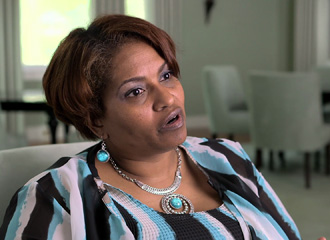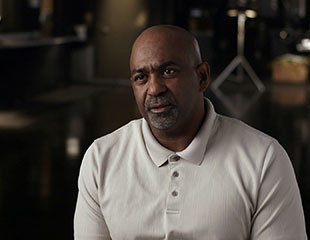When the Effects of Sexual Trauma Persist
4-minute read
When the Effects of Sexual Trauma Persist
4-minute read
The realization struck Tony in a self-help meeting in Michigan as he listened to others share their stories — the challenges they had faced, and the ways they had found help.
It was years after he had experienced sexual trauma in the military; years after he had left the Army, wrestled with drug problems, and lost a job.
“I realized that the problem with me all along was what was going on inside of me, how I felt about stuff,” Tony says, tapping his chest. “I had to figure out a way to do something. … And I found out that I had to talk about it.”
Tony is far from alone. Both men and women have faced the effects of military sexual trauma, including sexual assault, harassment, or unwanted sexual attention. Such traumatic experiences can negatively affect Veterans for years.
This April marks Sexual Assault Awareness Month. It’s a time to continue the national conversation about sexual assault. It’s also a time to build awareness about ways to support those who have had traumatic experiences.
“I didn’t let myself process it.”
For years, Jennifer held it all in. She was raped while serving in the Navy, but for nearly 10 years, she never spoke about it.
“I was sad, miserable, and angry — and I didn’t even know it. I thought I was happy,” she says. “I was drinking. I was partying on the weekends. I was out there pretending to be somebody that I wasn’t.”
That is, until one day, Jennifer’s daughter kept trying to get her attention. “Mom, mom, mom,” she said over and over, until Jennifer suddenly felt like something inside of her snapped. She almost hit her daughter.
“I called my husband crying, like, ‘Hey, can you come home? I need to go to mental health.’”
Like Tony, Jennifer was experiencing the effects of military sexual trauma that many men and women have gone through. The effects include challenges such as:
- Strong emotions, including sudden, extreme reactions or feeling depressed
- Feeling jumpy or on edge
- Misusing drugs or alcohol
- Feeling numb
- Having difficulty sleeping or concentrating
- Developing relationship problems
- Experiencing problems with physical health, including sexual challenges and eating or weight difficulties
“A safe space”
While Becca was serving in the Navy, someone broke into her room and attacked her. Years later, after she left the service, someone else tried breaking into her house. That triggered symptoms that prompted her to seek help, find ways to talk about it, and learn tactics for coping.
“I just remember them saying, ‘OK, so when you wake up in the middle of the night, and you’re freaking out, just remind yourself that you’re in your house and it’s a safe space.’ It went from waking up in a panic and being like, ‘Oh no!’ — to, ‘OK, things are going to be OK. That happened then; it’s not happening now.’”
Other ways to help manage your reactions to an experience of military sexual trauma include:
- Recognize triggers.
- Practice relaxation techniques.
- Get a good night’s sleep.
- Avoid excessive use of alcohol.
For Becca, the coping tactics began to work — and opening up did too. “The more I talked about it,” she says, “the easier it got.”
For Tony, an interesting thing happened the more he talked about it. “Every time I shared about it, at the end of that meeting, at least one man would come up to me and ask me for my phone number,” Tony says. “And then later we would talk about it.”
He is doing better, but he has never forgotten what it was like to just not know how to talk about what he was going through. His advice now: Find someone to talk to. Be honest. It’s your life, and you’re worth being happy.
“I just continue to let people help me, and use everything that I’ve been through to help other people. That’s a big, big thing for me.”
Did you experience military sexual trauma? Find ways to confront the challenges that are resulting from that experience.


